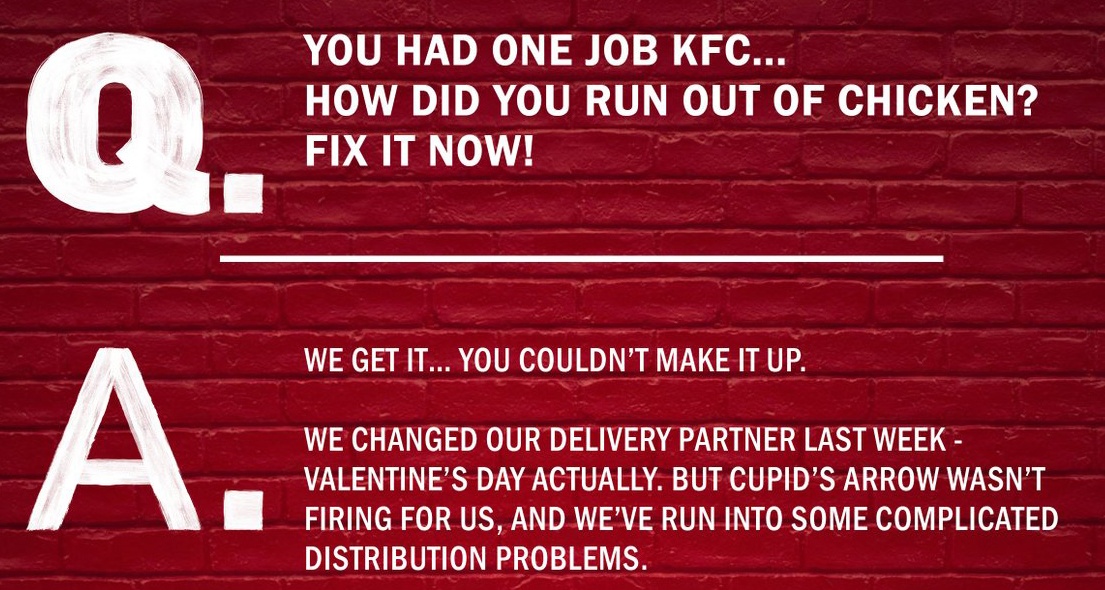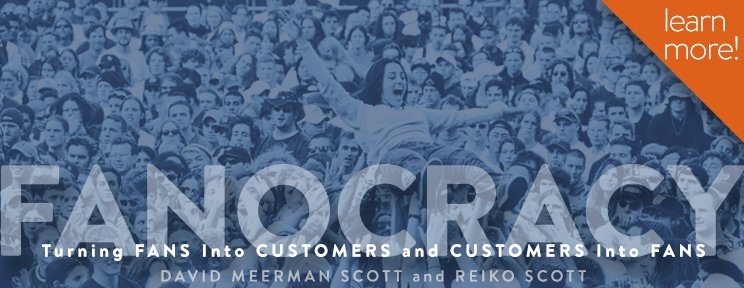The original version of this post on Feb. 24, 2018, has been edited to highlight the power of fandom.
Trust is essential to building fandom around your business. Without it, customers will have negative experiences with your business and most likely take their business elsewhere. Wells Fargo and PayPal are examples of this principle in action.
Being transparent will establish your business as honest and trustworthy, but it will also help you build genuine relationships with your customers.
Beyond the products or services you sell, the relationships with your customers determine how successful your business will be.
Just look at companies like Trader Joe's and Wendy's for proof. Transparency and relationship-building have helped these businesses stay competitive in industries with steep competition.
In this post, I'll revisit a fiasco in 2018 where UK locations of KFC ran out of chicken. Through transparency and quick-thinking, KFC turned a sticky situation into a fandom-building moment.
Building Fandom with Transparency
It was a #KFCCrisis. A chicken restaurant without any chicken! KFC in the UK changed logistics companies and the new provider fouled up the fowl deliveries. FCK! But the company did a wonderful job communicating the situation via social networks and advertisements.
In UK newspapers, the company ran full page advertisements cleverly changing the KFC logo on a chicken bucket to FCK. The ads read:
“We're sorry. A chicken restaurant without any chicken. Huge apologies to our customers, especially those who travelled out of their way to find we were closed. And endless thanks to our KFC team members and our franchise partners for working tirelessly to improve the situation. It's been a hell of a week, but we're making progress, and every day more and more fresh chicken is being delivered to our restaurants. Thank you for bearing with us.”

KFC created a site at the clever kfc.co.uk/crossed-the-road URL to provide a list of all UK restaurants and the chicken status of each. They also offered rewards to people affected via the company smartphone app.
On social media, the company was constantly providing updates, many with the fun approach of the ads.
Based on what went down on social media, KFC did a good job handling this crisis. They were quick to communicate, they were transparent in telling customers what was happening, and they did so in a fun way.
And, of course, other fast food companies jumped into the fray with a little friendly newsjacking.
Key Takeaway
KFC had a crisis to deal with, but instead of trying to hide their chicken shortage behind a canned PR response, they embraced the situation and took ownership of their problems. By emphasizing transparency, KFC responded with authentic and humorous ads and social media posts while offering rewards to their customers affected by the chicken shortage. KFC valued their relationships with customers, so they served honesty and truth when they couldn't serve chicken. That's fanocracy at its best!
For the past five years, my daughter and I have been researching how fandom can help any company reach new heights. Our new book, Fanocracy: Turning Fans into Customers and Customers into Fans, reveals all you need to know about how fandom can help your business. The book releases on January 7, 2020, but in the meantime, you can read the first chapter here.

David Meerman Scott
David Meerman Scott is a business growth strategist, advisor to clever entrepreneurs who are building emerging companies, and the international bestselling author of a dozen books published in 30 languages. David’s high-energy keynote presentations, masterclasses, and virtual events educate, energize, and inspire.


























